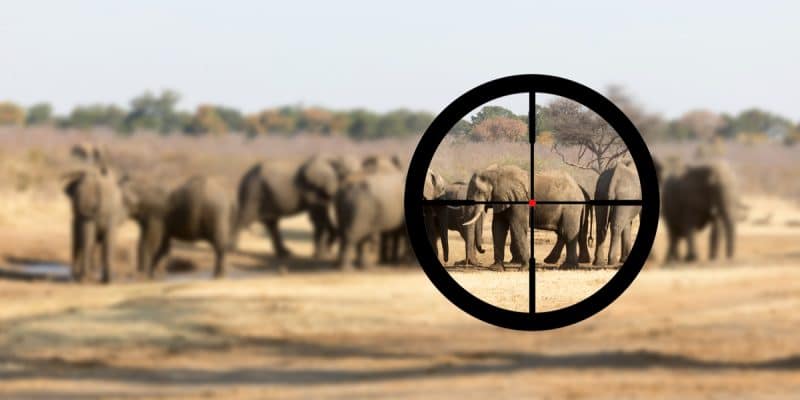A heated controversy broke out in Botswana on May 22, 2019, following the government's decision to allow hunters to kill elephants again. The proponents of nature soon took up the challenge. They denounce a decision that could lead to the extermination of the pachyderms on the continent. Botswana is home to more than 130,000 elephants, about one third of the African savannah elephant population.
The outcry over the restoration of elephant hunting in Botswana is far from over. Animal welfare NGOs seem to have been in constant action since the announcement made on May 22, 2019 by the government of Botswana, a southern African country.
“Our responsibility to protect the environment has not changed, but we have an obligation to citizens,” said Kitso Mokaila, Botswana’s Minister of the Environment. The Ministry promises a resumption of orderly and ethical hunting. Four hundred elephants will be captured each year in a controlled manner.
More than 130,000 elephants live in Botswana, about one third of the species in Africa. Five years ago, the country banned their sport hunting under the aegis of President Ian Khama. Last year, however, his successor, Mokgweetsi Masisi, set up a committee to determine whether the ban on trophy hunting could be lifted. An approach that the current government justifies by the difficult coexistence between humans and elephants, which has become even more complex. Due to the droughts of recent years, animals have spread across the country in search of water sources. These animals, weighing more than 5 tonnes, thus coming into contact with farmers more often, pose a threat to their lives, destroy their crops and ravage their properties.
Animal advocates fear a resurgence of poaching and ivory trafficking
Many animal welfare organisations were outraged by the lifting of Botswana’s elephant-hunting ban. It is “scandalous”, denounced Humane Society International, an NGO based in London. Botswana’s elephant population is “vital for the regional survival of this iconic species,” according to the NGO. “Resuming elephant hunting raises moral questions and runs counter to all international efforts to protect these mammals, not to mention the risk of damaging the valuable tourism industry, one of Botswana’s main resources,” Humane Society International added.
According to the International Union for Conservation of Nature (IUCN), although the number of pachyderms has increased in some African regions, it has decreased by 111,000 worldwide in a decade, mainly due to ivory trafficking.
In this debate, however, some organisations temper and reconcile the two opposing theses. This is the case with the World Wildlife Fund (WWF). Lifting the moratorium can be advantageous, as long as it is very well supervised. “In some strictly controlled cases, particularly of endangered species, scientific evidence shows that hunting can be an effective means of wildlife conservation,” the NGO said.
The same debates are being held elsewhere in the world about large mammals. In France, samples taken from wolf populations, claimed by shepherds, are thus rejected by environmental associations because the issue of protecting large mammals is linked to the protection of their habitat. Protecting these large animals means protecting their entire ecosystem and the species associated with them that form a long-food chain. Just as protecting ecosystems means protecting resources and reducing greenhouse gas emissions
Boris Ngounou







